
Welcome to Impossible School. I’m Blue, an adult in the building who apparently has enough time to show visitors around without sacrificing something far more useful I should be doing. That’s just the beginning of the many impossible things going on here at Impossible School!
Let’s start with the foundation of our humble approach – the Possible Machine. I know, I know… the name sounds like a contradiction, but it’s this device which actually makes Impossible School, well… possible.
You’re familiar with pen and paper assessments, yes? (Sometimes they’re on computers, but that merely makes them more expensive – the substance is sadly the same.) Generally these ‘assessments’ make deeply flawed efforts to determine a student’s existing content knowledge. Sometimes they venture into the realm of hit’n’miss personality profiles or oversimplified learning styles. Rather ambitious for ‘Choose A, B, C, or D’, right?
The Possible Machine does this – properly – and much, much more. It allows faculty and staff critical insights into what each student needs in order to make a meaningful learning experience possible. We can, of course, never guarantee success no matter what we know or do, since student choice unfortunately remains a critical component of all education. But we CAN get SO MUCH closer to providing the best possible opportunities and pathways to each and every lil’ darling who crosses our threshold.
Here, let’s slide into this classroom for a moment. That’s Ms. Lipsky over there, half-guiding that small circle discussion. These are kids who do best with personal interaction. They need the security that comes with structure, and they’ll read assigned material, but the information takes root and becomes meaningful when they have time to discuss it in a safe, somewhat organized environment. They’re capable of great things if they’re able to do this more often than a traditional classroom allows.
See the young lady on the far right? She’s not saying much, is she? Normally that would be a red flag, but in her case –
Oh! We’ve been asked to join in! Over half of the kids in this group were also identified by the Possible Machine as quite capable of professionally appropriate social skills – even at this grade level – if given a little guidance and opportunity. Consequently, they’ve been encouraged to take this sort of initiative.
No, thank you! We must continue the tour – but you’re doing great, kids!
Ah, here – Room 211. Mr. Zeller is giving a rather advanced lecture on the role of Calculus in AP Physics. You see we’re able to seat nearly 200 kids in this class, and have chosen an ‘auditorium’ style seating arrangement. Most of these students are on a self-selected Engineering track or other very #STEM sounding combinations of courses, and were identified easily and early as focused and self-driven. We have several assistants, of course, to provide individual or small group help, but you know the real challenge with this group?
Literature. They don’t naturally love literature.
Oh, some dragon books and such, sure – but we had to use graphic novels just to build basic familiarity with the classics. We don’t bury them in it, of course, but everyone ought to know a little Jane Austen, don’t you think?
What’s that? The Purple Door? Of course we can. You’ll notice much smaller class size here, and a very relaxed dress code and casual seating arrangements. These students have a variety of needs and gifts, but what they have in common is a lack of intrinsic interest in academic subjects like math or history and varying levels of unsupportive or even chaotic home environments.
Thanks to the Possible Machine, we were able to realize this immediately and set them up with teachers who, while quite qualified in their subject matter, are more about heart than head. They spend as much time on life skills as they do traditional content, and students are assessed for progress and effort rather than cut scores on state exams written by people who couldn’t on their best day so much as fathom their realities. Most of these kids need protein and access to mental health services more than they need a deeper understanding of the Progressive Era – ironic as that may seem.
We do, of course, work on math and reading skills. The instructors are some of our most knowledgeable, but their focus is on stimulating interest and applying what’s learned towards successful living rather than simply punishing kids – however wrapped in fluffy platitudes – for their upbringing.
Across the way here you see a classroom which at first glance looks similar – looser policies regarding dress and language, and a variety of seating options. These kids, however, are very motivated to do well, and consequently can be pushed much further in the cores and several extension topics which vary by semester.
Pushed? Oh yes, I choose that word quite specifically. I said they were motivated, not intrinsically driven to truly learn. They come from families who care deeply about good grades and college prep and staying in just the right amount of activities. We don’t have to worry about these kids failing – the Possible Machine knew that from the moment they walked in the door.
The challenge with this group is actual learning. Sure, we have ‘grades’ as motivators, but Miss Benovidas and Mr. Carson have shown quite a gift for transitioning them into actual interest in the various subjects being taught. Under the old system, these kids would have been completely written off based on the numbers and letters they were able to secure by successfully gaming the system. We’d throw a few awards at them, give them an extra ribbon or two at graduation, and think we’d accomplished something as they went forth cynical and jaded, unable to see the wonders of string theory or appreciate the beauty of fractals as mathematical art.
We’ve retained the outdated A-F labeling system, but only to smooth the transition. Miss B. and Mr. C. don’t measure their success or student progress by those silly letters; their challenge is to find ‘sparks’ in the eyes of these little darlings over something they didn’t think they could even care about – the Populist Movement, or the power of allegory in a great speech, for example.
Thanks to the Possible Machine, we don’t insult students who come from educated, involved homes by dragging them through ‘financial literacy’ or ‘Constitution Day’, and we don’t unnecessarily traumatize them with ‘Sex Ed’ or hours of ‘how to calculate your GPA’. They can skip that and move into what their parents would call ‘real school’.
On the other hand, we don’t neglect students who couldn’t otherwise ask essential questions about sex, or pregnancy, or health care. We’re able to identify those who couldn’t successfully watch an episode of The West Wing without more background knowledge, and those for whom the only pathway to success in science or math is through music and art.
The Possible Machine confirms our instincts as to how many of our young ladies need to be told regularly that they’re strong, and beautiful, and smart, or that what happened to them wasn’t their fault – it wasn’t ever, ever, ever, in any way or by any definition – their fault. It points out the young men who seem fine, but who need someone to look them in the eye and ask how they’re doing several days a week, and the quiet ones who really are fine watching and listening and mostly staying… quiet.
The Possible Machine tells us which kids need sports more than they need World History, and which kids will do better in World History if we use sports as leverage. It helps our teachers better intuit who to push, who to comfort, when to offer greater freedom and when to maintain the comfort and security of unyielding structure.
We hear repeatedly that “all children can learn,” yes? And they can. Of course they can.
But they can’t all learn equally well in the exact same ways or on the same schedules. They can’t all move forward on the same tracks at the same speeds to hit the same checkpoints at the same time. That’s ludicrous. Imagine a public education system grounded on such an inane fallacy! Why, it would be mired in mediocrity for decades!
At Impossible School, all children can learn, and do so more widely and deeply than they could have imagined. At Impossible School, we build on the unique combinations of interests, strengths, and possibilities each child carries within them – and can reevaluate this yearly, monthly, or weekly if need be.
We’re able to teach more than the ‘average’ student or the fictionalized ‘standard’ kid. Thanks to the Possible Machine, we’re able to figure out the intangibles of each student – each weird, wonderful, gifted, needy, broken, individualized student – and chart how they might best be stretched and realized intellectually, personally, and professionally.
At Impossible School, we refuse to treat diversity as a disease only curable by standardization.
Because it’s possible, somehow. It’s possible – for all of them.
RELATED POST: Dolph & Lana Break The Rules
RELATED POST: Wil Wheaton, Aquaman, and Octave Chanute
RELATED POST: The Seven Reasons Every Teacher Must Know WHY Kids Learn!


 OK, strangely I had at least heard of this before. Last year there was a lunch table committed to daily sharing of… whatever one calls ‘fan fiction’ in the anime world. Mostly it was this “Hetalia.” I remember two girls quite dogmatic about Pakistan deserving a main character.
OK, strangely I had at least heard of this before. Last year there was a lunch table committed to daily sharing of… whatever one calls ‘fan fiction’ in the anime world. Mostly it was this “Hetalia.” I remember two girls quite dogmatic about Pakistan deserving a main character.
 Because although I like to think of myself as reasonably bright, this show is in a language I simply don’t speak – and in this case I don’t mean Japanese. It’s a media format that’s really not my thing, and to which I’ve only rarely been exposed. Consequently, someone more familiar with similar shows – or even the comics on which they’re based – might find me a bit… slow. Unappreciative. Perhaps whiney or defiant, depending on how many of my initial reactions I spoke aloud.
Because although I like to think of myself as reasonably bright, this show is in a language I simply don’t speak – and in this case I don’t mean Japanese. It’s a media format that’s really not my thing, and to which I’ve only rarely been exposed. Consequently, someone more familiar with similar shows – or even the comics on which they’re based – might find me a bit… slow. Unappreciative. Perhaps whiney or defiant, depending on how many of my initial reactions I spoke aloud. Watching this show is how my students feel when I ask them to read a great novel for both content and theme, to explore metaphor and the use of language and imagery, or to unravel the roles various characters play in a grander narrative. My experience was somewhat comporable to what happens to them the first time they’re expected to analyze a legitimate historical document, or figure out Causes, Triggers, and Results for major events. It’s not that these things are unreasonable or hard – it’s that they’re not their world.
Watching this show is how my students feel when I ask them to read a great novel for both content and theme, to explore metaphor and the use of language and imagery, or to unravel the roles various characters play in a grander narrative. My experience was somewhat comporable to what happens to them the first time they’re expected to analyze a legitimate historical document, or figure out Causes, Triggers, and Results for major events. It’s not that these things are unreasonable or hard – it’s that they’re not their world.
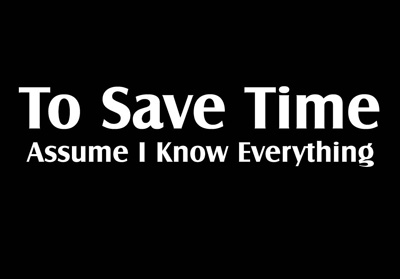
 Kids learn while playing, or while caught up in other things. Everything from blocks and unstructured time as a little person through video games or online arguments as a teen – information, good or bad, is created, encountered, or absorbed. This one is so very important and can be crazy effective – but it’s the one most threatened by the Cult of Assessment and our own unwillingness to Defy the Beast.
Kids learn while playing, or while caught up in other things. Everything from blocks and unstructured time as a little person through video games or online arguments as a teen – information, good or bad, is created, encountered, or absorbed. This one is so very important and can be crazy effective – but it’s the one most threatened by the Cult of Assessment and our own unwillingness to Defy the Beast. 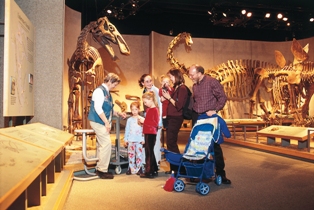 We all know the value of parents reading to their children. In a perfect world they take them to museums or musical performances, or travel places promoting conversation and reflection. How many times a day does a parent or sibling overtly attempt to explain a ‘why’ or a ‘how’ to a little kid?
We all know the value of parents reading to their children. In a perfect world they take them to museums or musical performances, or travel places promoting conversation and reflection. How many times a day does a parent or sibling overtly attempt to explain a ‘why’ or a ‘how’ to a little kid? This is the ideal. Those kids who keep wanting to know if they can leave your class to go finish something in Engineering? They tend to get good at engineering. That girl who reads voraciously? She tends to get pretty good at reading. And don’t get me started about young people truly devoted to their choir, marching band, baseball team, or speech & debate.
This is the ideal. Those kids who keep wanting to know if they can leave your class to go finish something in Engineering? They tend to get good at engineering. That girl who reads voraciously? She tends to get pretty good at reading. And don’t get me started about young people truly devoted to their choir, marching band, baseball team, or speech & debate. 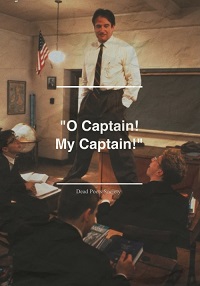 I have mixed feelings about this one.
I have mixed feelings about this one.  This may begin from above – parents, or even the school system itself – but often becomes internalized. Either way, this is a stress-driven type of learning with little lasting value.
This may begin from above – parents, or even the school system itself – but often becomes internalized. Either way, this is a stress-driven type of learning with little lasting value. This one is pretty rare if you eliminate the vague terrors in play above. There are a few, however, who are specifically chasing a degree in veterinary medicine, motorcycle repair, or that study abroad opportunity in Monaco. They press on because they know what they want.
This one is pretty rare if you eliminate the vague terrors in play above. There are a few, however, who are specifically chasing a degree in veterinary medicine, motorcycle repair, or that study abroad opportunity in Monaco. They press on because they know what they want.  If you torture them enough, confine them in stale rooms and badger them into compliance…
If you torture them enough, confine them in stale rooms and badger them into compliance… 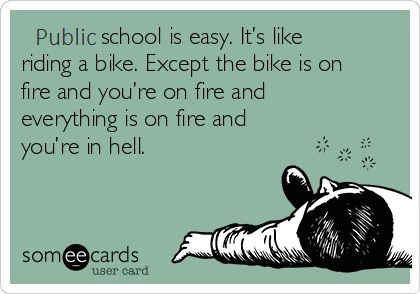
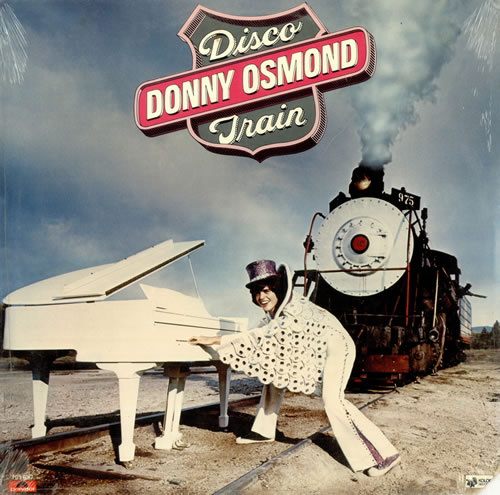
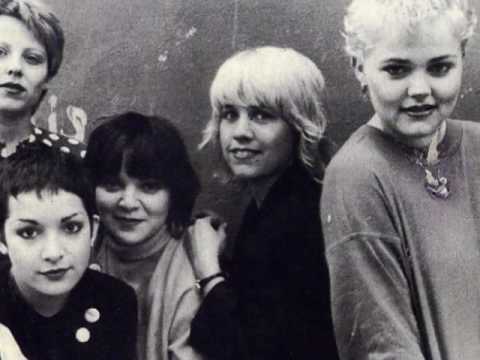 “Yeah!” she said with what seemed to be not-entirely-forced enthusiasm. “I loved them before they were signed. Have you heard their indie stuff?”
“Yeah!” she said with what seemed to be not-entirely-forced enthusiasm. “I loved them before they were signed. Have you heard their indie stuff?” This could be varied in intensity, depending on what you were going for…
This could be varied in intensity, depending on what you were going for…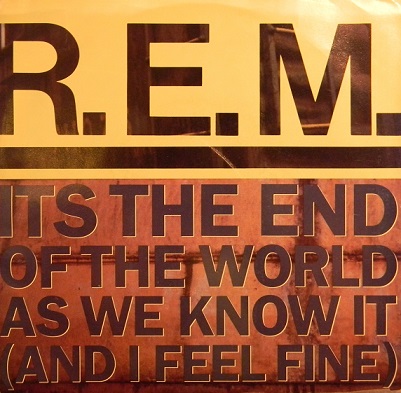 R.E.M. was writing about strangely familiar experiences in enigmatic ways and with a more complex humanity than I was prepared to understand. They used their words and their instruments very differently from either ‘classic rock’ OR the Osmonds, and it wasn’t easy to get my brain around.
R.E.M. was writing about strangely familiar experiences in enigmatic ways and with a more complex humanity than I was prepared to understand. They used their words and their instruments very differently from either ‘classic rock’ OR the Osmonds, and it wasn’t easy to get my brain around.  You’re welcome to enjoy Twilight, but it’s not great literature. Lord of the Flies IS, even if you don’t fully ‘get it’ or like it right away. The History of Alien Sex-Abduction may be a legitimate topic to pursue, but with all due respect to the History Channel, a basic understanding of the Progressive Era is probably a better use of time and resources. Even math is –
You’re welcome to enjoy Twilight, but it’s not great literature. Lord of the Flies IS, even if you don’t fully ‘get it’ or like it right away. The History of Alien Sex-Abduction may be a legitimate topic to pursue, but with all due respect to the History Channel, a basic understanding of the Progressive Era is probably a better use of time and resources. Even math is –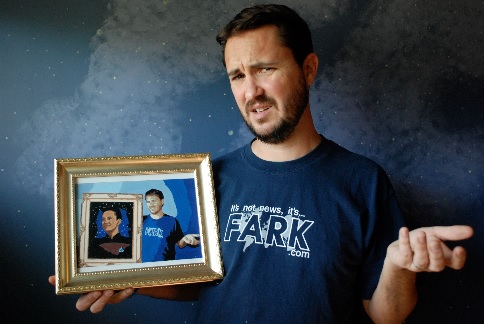 Wil Wheaton, for those unaware, is best known for his role as ‘Wesley Crusher’ on Star Trek: The Next Generation (1987 – 1994). He was a regular for the first four seasons, then a recurring guest for the final three.
Wil Wheaton, for those unaware, is best known for his role as ‘Wesley Crusher’ on Star Trek: The Next Generation (1987 – 1994). He was a regular for the first four seasons, then a recurring guest for the final three. 
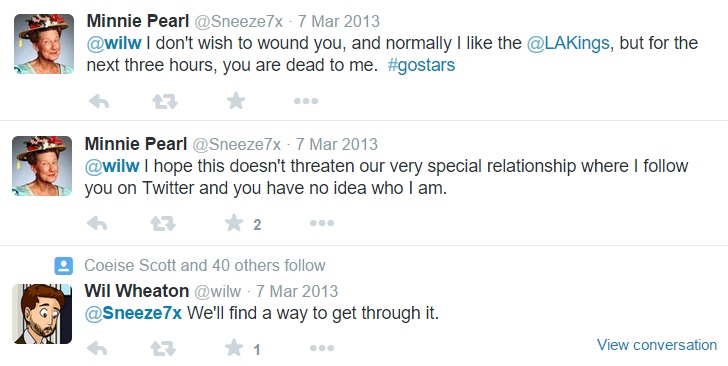
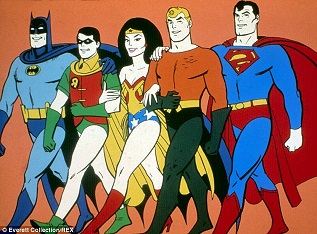

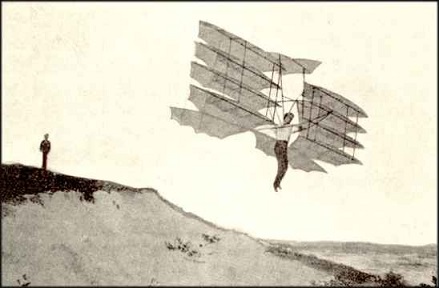 Chanute was an innovator who designed a few machines himself, but was too old to strap himself into some bizarre contraption and jump off a cliff. His greatest contribution to the field was his willingness to gather correspondence and information from all around the world regarding the aerial efforts of others. He compiled and edited specialized periodicals, and put people in touch with one another when he thought they might mutually benefit.
Chanute was an innovator who designed a few machines himself, but was too old to strap himself into some bizarre contraption and jump off a cliff. His greatest contribution to the field was his willingness to gather correspondence and information from all around the world regarding the aerial efforts of others. He compiled and edited specialized periodicals, and put people in touch with one another when he thought they might mutually benefit.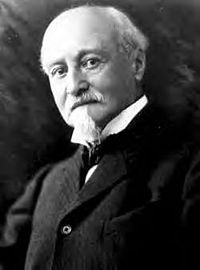 Occasionally he’d organize a dinner, or at least cigars in the den. That, I suppose, was the Skype of the day.
Occasionally he’d organize a dinner, or at least cigars in the den. That, I suppose, was the Skype of the day.  Abraham Lincoln was a pretty big deal, but so were the Robert Andersons and Joshua Lawrence Chamberlains – not to mention nameless thousands who showed up and did their part. Katniss may be central to ending the Hunger Games and overthrowing President Snow, but without the talent, focus, and drive of Cressida, Messalla, and their ilk, we have an entirely different finale.
Abraham Lincoln was a pretty big deal, but so were the Robert Andersons and Joshua Lawrence Chamberlains – not to mention nameless thousands who showed up and did their part. Katniss may be central to ending the Hunger Games and overthrowing President Snow, but without the talent, focus, and drive of Cressida, Messalla, and their ilk, we have an entirely different finale.